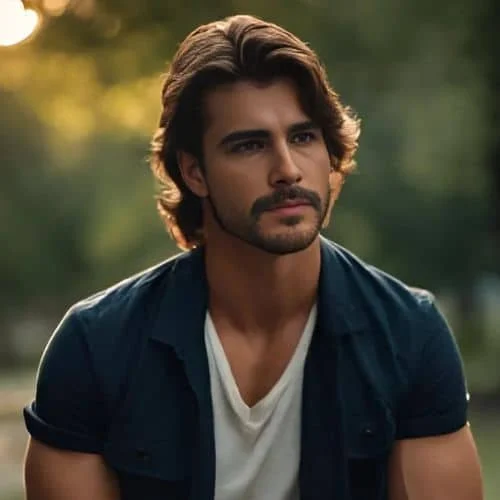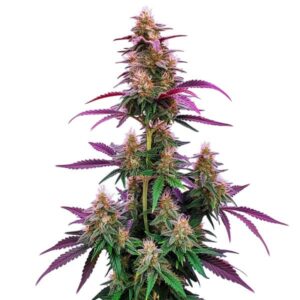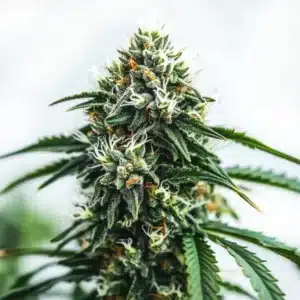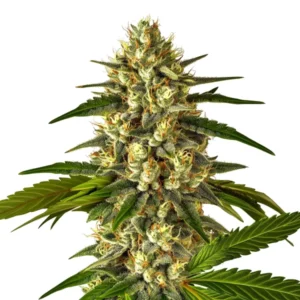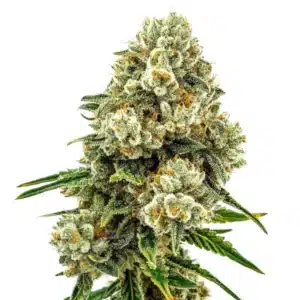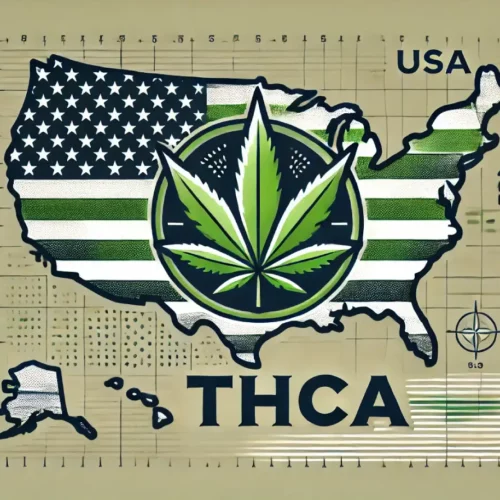
Is Cannabis Legal in China? Regulations, Penalties & Outlook
Historical Context of Cannabis in China
Traditional Uses and Early Attitudes
Cannabis has deep roots in Chinese history. For millennia, it served as a practical crop used in textiles, paper, and traditional medicine. Ancient Chinese texts refer to the plant not for its psychoactive effects, but for its healing properties. Practitioners crushed the seeds for oil and mixed them into herbal treatments, often used to ease pain, calm the nervous system, and relieve symptoms of inflammation or digestive discomfort.
Beyond medicine, cannabis held a key place in everyday agricultural life. Hemp stalks became rope, sailcloth, and paper. Seeds were sometimes consumed as food during periods of scarcity. Farmers valued the plant for its resilience, as it grew quickly and required little maintenance. In areas with limited arable land, cannabis provided a sustainable solution for meeting economic and nutritional needs.
Recommended Strains
AK 48
 THC: 14% - 16%
THC: 14% - 16% Type of seed: Feminized
Type of seed: Feminized Phenotype: Mostly Indica
Phenotype: Mostly Indica Day to flower: 8 - 10 weeks
Day to flower: 8 - 10 weeks
2046 Fast Version
 THC: 20% - 26%
THC: 20% - 26% Type of seed: Fast Flowering
Type of seed: Fast Flowering Phenotype: Mostly Sativa
Phenotype: Mostly Sativa Day to flower: 8 - 10 weeks
Day to flower: 8 - 10 weeks
20th-Century Drug Policies
The 1900s brought a radical change. As China faced foreign invasions, opium wars, and political revolutions, national leaders began cracking down on any substance that altered consciousness. Cannabis, despite its long medicinal past, got caught in this wave of prohibition. The newly formed People’s Republic of China made drug control a top priority, lumping cannabis in with heroin and cocaine.
By mid-century, the plant’s image had shifted. It was no longer a helpful crop but a symbol of decay and foreign influence. Authorities launched intense campaigns to eradicate drugs, and cannabis cultivation became a crime. Propaganda emphasized the dangers of all narcotics, setting the tone for decades of harsh policy. These narratives still influence how the plant is perceived today.
Influence of International Treaties
China didn’t operate in isolation. It signed on to key global drug treaties, including the 1961 Single Convention on Narcotic Drugs, which pushed nations to ban cannabis. These agreements shaped Chinese drug laws and reinforced the zero-tolerance approach adopted domestically.
By participating in these treaties, China aligned itself with global norms, building diplomatic relationships while sealing cannabis’s legal fate. The treaties gave national efforts a legal backbone, framing the plant not as a traditional herb, but as an international threat that demanded strict enforcement. This alignment also reduced public space for national debate.
Promos & Deals
Present-Day Legal Framework
National Criminal Laws
Cannabis is a controlled substance under Chinese law. It sits on the same list as heroin, methamphetamine, and cocaine. If you’re caught with it, whether growing, using, selling, or transporting, the penalties are severe. A few grams can trigger months in detention or longer prison sentences. Trafficking brings even harsher results, including life imprisonment or capital punishment.
This legal stance doesn’t distinguish between cannabis for medical, recreational, or industrial use unless you’re officially licensed for industrial hemp. The Criminal Law and Narcotics Control Law govern all cannabis activity. There’s no gray area: the law treats every cannabis-related act as a serious offense. Even intent to use can result in arrest.
Administrative Regulations
In addition to criminal codes, China uses administrative measures to fight cannabis use. Schools run drug education programs that begin in elementary years. Employers carry out routine drug screenings. Customs officers monitor airports and seaports closely for cannabis smuggling, and online surveillance flags suspicious purchases or searches.
Police can impose fines, mandatory counseling, or short-term detentions for minor violations, even when formal charges aren’t filed. Foreigners are subject to the same rules and often face deportation. These administrative layers strengthen control and create a culture where drug use is both legally and socially unacceptable. Compliance is often monitored through neighborhood committees.
Local Enforcement Variations
While the national stance is strict, enforcement varies across China. In megacities like Beijing, enforcement is high-tech and tightly coordinated. Police use facial recognition, anonymous tips, and AI to identify potential users or dealers. Raids happen frequently, and penalties are swift.
In contrast, rural provinces may struggle with fewer resources. Some areas prioritize other crimes, which might lead to occasional leniency in practice, though not by policy. However, even in less monitored regions, periodic crackdowns serve as public warnings. Citizens know that no place is immune to enforcement when directives come from the top.

Medical Cannabis Status
Research Restrictions
Research into medical cannabis in China is tightly restricted. Universities and pharmaceutical companies can’t freely study cannabinoids, especially if the work involves THC. All research must get approval from the government, which rarely happens. The state fears abuse and believes even medicinal use might lead to broader acceptance of recreational cannabis.
This position limits scientific progress. China has advanced labs and strong pharmaceutical capabilities, but those resources rarely touch cannabis. Researchers risk license loss or legal action if they deviate from approved projects. As a result, medical cannabis remains a subject of international study, not domestic innovation. The lack of public access to results limits public support.
Approved Medicinal Products
Currently, no cannabis-based medicines are legally available in Chinese pharmacies. Imports containing THC or full-spectrum cannabinoids are banned. Even CBD oils, widely accepted in other countries, face scrutiny. Border agents seize shipments and travelers carrying them risk detention.
A few state-backed companies may process hemp for export, producing oils, creams, or textiles for foreign markets. These products never reach Chinese consumers. As long as the laws stay the same, patients who seek cannabis treatments must travel abroad or order through risky underground channels. Domestic demand remains unmet.
Licensing Requirements
Getting a license to grow or research cannabis is a near-impossible task for private entities. The state limits access to a handful of government-approved farms and labs. These facilities cultivate low-THC hemp for textiles or export, not for internal medical supply or research.
Applicants must pass security audits, environmental assessments, and political background checks. Licenses are granted through multiple government departments, including agriculture, health, and narcotics control. The application process can take years and offers no guarantee of success. This level of control ensures that cannabis stays out of public hands.
Recreational Use and Black Market
Illicit Supply Chains
Despite harsh penalties, an underground cannabis market exists in China. Traffickers smuggle products from Southeast Asia, especially from countries where regulations have relaxed. They use creative methods, hidden compartments in cars, encrypted messaging apps, and false product labeling, to avoid detection.
Inside China, distributors target niche groups, often via invitation-only forums or hidden web links. The market includes traditional flower, hashish, edibles, and vape cartridges. While small in comparison to Western countries, the black market is well-organized and difficult to eliminate completely. Demand remains steady in certain urban zones.
Consumer Risks and Penalties
Using cannabis in China carries enormous risks. Anyone testing positive during a drug screen, whether due to possession or consumption, can face arrest. Hotels and landlords are required by law to report any suspected drug use. The result is constant fear among users, both local and foreign.
Penalties vary but include administrative detention, forced rehab, fines, and criminal records. Tourists caught with cannabis often receive fast-tracked deportation and travel bans. Locals may face long-term consequences, including job loss and restrictions on education or housing. The state makes examples of offenders to discourage others.
Notable Enforcement Actions
Several high-profile cannabis arrests have made headlines in China. In 2019, a Canadian man was sentenced to death for smuggling cannabis oil. Other cases involved expats caught with personal stashes, some as small as a few grams. Even public figures, including musicians and influencers, have been detained and publicly shamed.
These actions serve as warnings. Authorities release details through state media, reinforcing the message that drug laws are not negotiable. These cases generate intense public discussion, often reinforcing negative views of cannabis and supporting continued prohibition. Media coverage typically echoes official messaging.
Prospects for Reform
Domestic Public Opinion
Legalization has little support among the Chinese public. Anti-drug campaigns, broadcast for decades across schools and state media, have left a strong impression. Many people associate cannabis with social decay, crime, and foreign exploitation. Changing these beliefs will take time, education, and public dialogue.
Still, some younger citizens question the government’s stance. On social media, censored conversations pop up discussing medical use or global legalization trends. These discussions rarely last long, but they hint at shifting attitudes among tech-savvy generations. For now, however, public opinion favors prohibition.
Regional Pilot Programs
Provinces like Heilongjiang and Yunnan have launched hemp cultivation programs. These initiatives target the textile and cosmetics markets, focusing on low-THC plants. Farmers receive government training, and the crops are tightly regulated to ensure compliance.
While promising for economic development, these programs steer clear of any THC-related use. They don’t signal policy softening toward cannabis for medical or recreational purposes. Still, they mark the first steps toward a nuanced cannabis policy—one that differentiates between industrial utility and psychoactive use.
Comparisons with Asia-Pacific Trends
Many Asian countries have started adjusting their cannabis laws. Thailand has opened medical and some recreational use. Japan and South Korea allow limited medical access. These changes contrast sharply with China’s position, creating a patchwork of cannabis policies across the region.
For now, Chinese officials watch these shifts cautiously. They’ve shown little willingness to follow suit, citing fears of addiction and social harm. But as neighboring countries see economic benefits and medical breakthroughs, pressure may build. Policy change is unlikely soon but not entirely off the table.

FAQs about Is Cannabis Legal in China
Can foreign visitors bring CBD oil into China?
No. CBD oil is treated the same as THC under Chinese regulations. Tourists found with it risk detention, fines, or deportation. Even if the product was legally purchased elsewhere, Chinese customs classify all cannabis-derived products, including CBD, as narcotics. It’s strongly advised not to carry any cannabis-related substance, even in small quantities, when traveling to China.
What penalties apply for small-scale possession?
Even small amounts of cannabis can lead to arrest, mandatory rehab, or prison time. Foreigners may also face deportation or blacklisting. Authorities in China treat possession seriously regardless of the amount. In some cases, random drug testing can trigger legal consequences, and travelers have reported being detained for merely testing positive without physical evidence of possession.
Are hemp products treated differently under law?
Yes, hemp products with under 0.3% THC are allowed for industrial use. These are tightly regulated and not available for personal consumption. Only government-approved entities may cultivate or process industrial hemp, and all activities must be documented and tracked. Unauthorized possession or sale of hemp products, even with low THC levels, can still lead to legal complications if not clearly documented.
